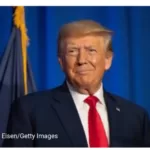Toronto, Canada has taken a significant step in addressing allegations of political interference by foreign nations, primarily China, by appointing a distinguished judge to lead a public inquiry. The aim is to restore public trust in a process that has been marred by prolonged political disputes and accusations of nepotism.
The ruling Liberal party, on Thursday, announced the appointment of Marie-Josée Hogue, a respected appeals court judge from Quebec, to lead a comprehensive public inquiry into claims of foreign interference in Canadian elections. Hogue’s mandate includes the responsibility of providing a set of recommendations before the upcoming federal elections scheduled for 2025.
Dominic LeBlanc, serving as the Minister of Public Safety and Democratic Institutions, stated that Justice Hogue would be tasked with a comprehensive examination of foreign interference, including activities attributed to China, Russia, and other foreign states and non-state actors. He emphasized that foreign interference posed a “global challenge” to democratic processes. LeBlanc further assured that Hogue would have unrestricted access to essential documents required for the inquiry.
Over the past year, Canada has been rocked by leaked intelligence reports alleging Chinese election “meddling” within the country. Concerns have also arisen regarding the operation of illicit “police stations” purportedly run by foreign entities within Canada’s borders.
In May, Canada expelled a Chinese diplomat following an intelligence report that accused him of attempting to intimidate a Canadian legislator critical of Beijing’s treatment of the Uyghur Muslim minority.
However, efforts to investigate the extent of foreign interference have faced setbacks in recent months, notably with the resignation of the official originally selected to lead these efforts.
David Johnston, a former governor general, withdrew from the role, citing a “highly partisan atmosphere” that prevented him from fulfilling his duties as “special rapporteur.” A majority of lawmakers in the House of Commons passed a motion in late May, calling for Johnston to step aside, citing concerns over potential conflicts of interest due to Johnston’s ties with the Trudeau family.
Hogue will now take charge of the inquiry and is expected to deliver an initial report by the end of February in the following year. This report will assess whether interference efforts, not only by China but also other countries, had any influence on the federal elections in 2019 and 2021. A panel of independent members, established to monitor potential election threats, recently informed lawmakers that the interference attempts did not compromise Canada’s ability to conduct free and fair elections in 2021.
Regarding the extent of disclosure to the public, LeBlanc clarified that it would be at Hogue’s discretion to determine the level of transparency for the inquiry.
Additionally, Hogue is required to provide a second report by the end of December 2024, presenting recommendations to safeguard Canada’s democratic institutions against foreign interference.
Both reports are due before the next federal election, set for autumn 2025. It’s noteworthy that the Liberal government relies on the support of the New Democratic Party (NDP) to remain in power, and any withdrawal of NDP support would trigger an election.







